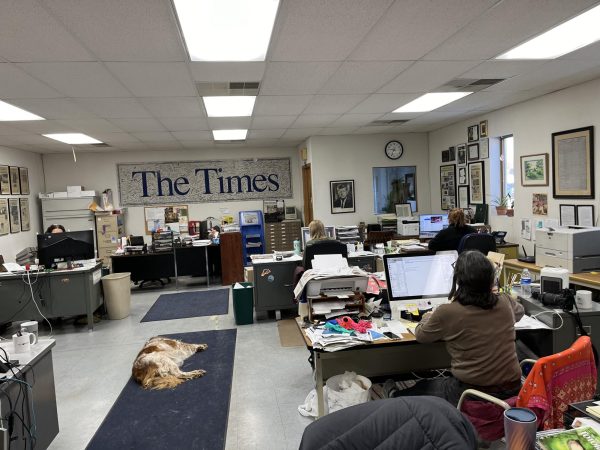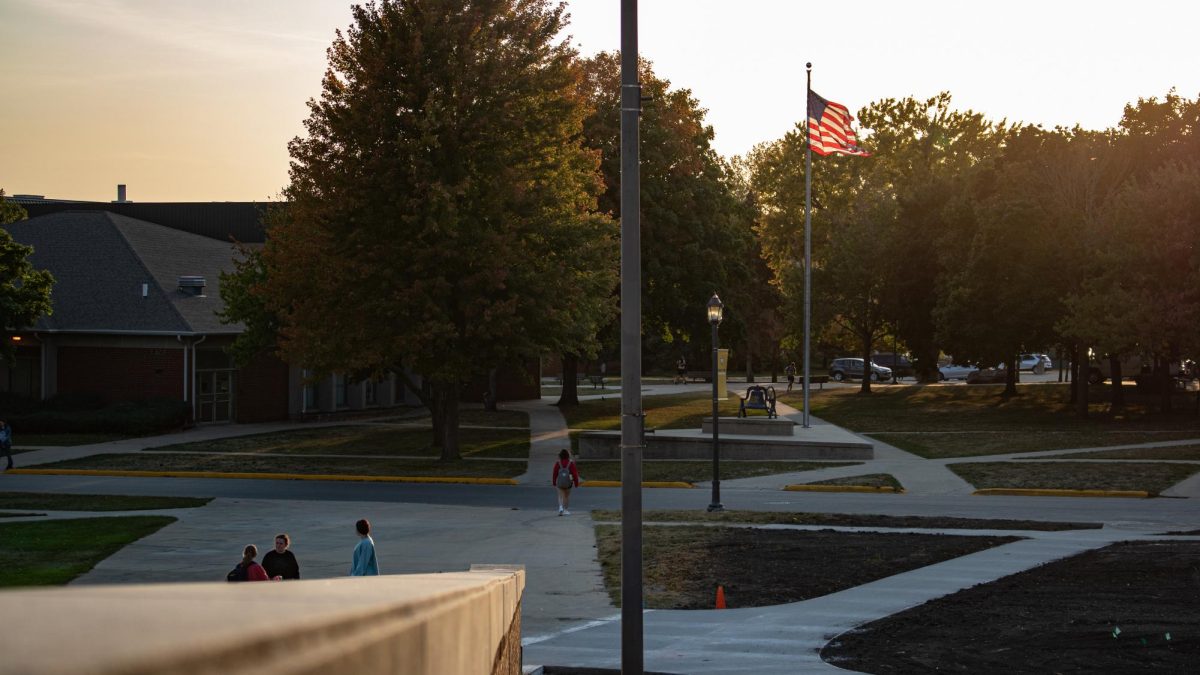The decline in trust in the media is a big topic with significant implications. That loss of trust is even more dire for small, local news outlets. I thought that such a big problem required the input of a big name in the journalism world. Art Cullen is a Pulitzer Prize winning journalist from right here in Storm Lake. He is the editor and publisher of the Storm Lake Times which he runs with his brother, John. He is the author of “Storm Lake: A Chronicle of Change, Resilience, and Hope from a Heartland Newspaper” and the focus of the documentary used as instructional tool across the country, “Storm Lake.”
With close to 45 years of experience, Cullen has been a vocal leader in the fight to save local news. He advocates that local papers are what hold communities together and deal in facts, unlike many of the social media posts and videos that have begun to plague mainstream news media. I aimed to pick Cullen’s brain to see what a veteran journalist and passionate news advocate had to say about the trust in news in today’s world.
Below are the questions that I asked Cullen, along with his answers and a summary. Each one will have a link to an extended version of his answers in audio format.
Question: Is the disengagement of younger readers the root of newspapers across Iowa and the nation closing their doors?
Answer: “No, it’s been happening for my entire career. The news industry has been in decline since 1980,” said Cullen.
It is an interesting and almost shocking answer. Many people think of the news industry’s decline beginning when most things in media began to go digital. In actuality, print media has been in decline since televisions arrived in the 1950s and with the birth of the internet, readers had more access to more news. They did not need to rely on their local papers to bring them information. In today’s world, with the number of deepfakes and fake news stories circulating, readers have begun to trust media outlets less and less. This results in less subscriptions to local papers and an apathetic attitude from the community when they start to go belly up. Here is more from Art Cullen on this question.
Question: Are there any ways to better engage young readers?
Answer: “From the research I’m reading [one way] is to identify solutions to these problems,” expressed Cullen.
With all that is going on, it can seem like the world is flushing itself down the toilet. As a young reader myself, I can definitely say that the news that our generation has consumed for much of our lives is depressing and disheartening in most aspects. It can be hard to continuously pay attention to the news when all you expect is to be bombarded by that week’s edition of awfulness. No one wants to see bad things over and over again. This is why the trend of young readers and subscribers of news media points down. There is an escape in social media in some ways, but now even that has been overtaken with fake news headlines and clickbait. This has led many to distrust news outlets as they are lumped in with the bad apples. Often the first thought of any story seen is whether it is true.
Question: Why should people care that local newspapers are beginning to disappear?
Answer: “Well, it’s kind of interesting because that’s what the attitude was in a place called Canadian, Texas. Where the newspaper closed and after it closed everybody said, ‘Oh my God, the community’s falling apart without the newspaper,’” Cullen described.
The story that Cullen mentioned is one that is all too familiar. A local paper, ran by a local family, closing its doors and giving way to a “news desert.” These deserts are areas across the nation that have no local coverage. The paper ran its last publication on March 2nd of this year. An apathetic attitude towards local papers is what leads to these things. The community does not believe that paper is needed or that others besides themselves will help to keep it afloat. The ensuing damage is a lack of knowledge of current events in their own backyard. It can leave neighborhoods and counties all over the United States in the dark about important things that directly impact their lives.
An article on Canadian’s newspaper dissolving is linked here.

Question: Do you feel that local papers enjoy greater trust from readers than bigger national news outlets?
Answer: “Oh there’s no question about it, … People do trust us because you know we cover their high school basketball team, we run a picture of the homecoming queen on the front page, and when you show a champion steer, we’re there to take a picture,” Cullen explained.
Cullen’s answer encapsulates the culture that the local newspaper is all about: connecting the community and keeping them informed about what’s going on in their area. Local papers enjoy more trust than their national counterparts, but that doesn’t seem to slow down their disappearance. Residents look to their paper in times of need. Whenever they need information on their local elections or an update on the high school football team, their local paper is there. The papers just ask for subscription money to stay in business, but many do not seem to want to invest in their community.
Question: What is the role of disinformation or misinformation in the loss of trust in pro journalists?
Answer: “We get lumped in with Fox News and so people read us with a jaundice eye and that’s not fair to us,” expressed Cullen.
Cullen is referring to the fact that Fox News has been caught lying in the past. Specifically, during the 2020 election when Donald Trump made outlandish claims of voter fraud, Fox News pushed the story. Since both Fox News and local papers are media in the eyes of readers and news outlets have been caught lying, there is an overarching view of lost trust towards all media. Local papers have no control over this generalization and deeply impacts their relationship with their subscribers and the surrounding community. It is an unfair assessment, and one that can cost small towns and counties their source of news.
Question: According to Pew Research, adults under 30 are now almost as likely to trust information from social media sites as they are to trust information from national news outlets. Do you find that concerning?
Answer: “Yeah, I do. And I actually understand what the ethos is at The New York Times and The Washington Post, … I know how they operate, and they don’t deserve that level of distrust,”
The next generation, my generation, is being sucked into social media news, which is often not trustworthy. As the next generation of voters and leaders, it is important to know what truth is when looking at current events and political topics. This study also shows that this demographic is using social media as their main news source rather than a supplementary one. In an online world where anyone can post about anything, it is likely that many if not all who consume news from social media will fall for hoaxes or exaggerations that can lead to biases and prejudices of different groups and topics.
Question: How can adults, especially young ones, know what is a trustworthy news post on social media?
Answer: “Well first I would get my information from so-called traditional news sources like The New York Times or The Storm Lake Times Pilot,” said Cullen.
Cullen advises readers to first read news stories from outlets that are trusted. While social media platforms are often used for entertainment rather than news, when a news story pops up, it is a better idea to dig deeper into it through print news rather than looking at a trending hashtag. Of course, these more trusted news companies have social media accounts. These are also good to follow to ensure that the news we consume is reliable and many of their posts provide a legitimate article rather than a post or short few sentences.
Question: What is your advice to young journalists to foster trust in their community in order to serve it?
Answer: “First to be trusted, you have to exist, … and you do that by providing an accurate portrayal of what’s going on,” described Cullen.
I used this as a concluding question to spark hope and possible inspiration. Here, Cullen expresses the need for more journalists, and hard-working ones at that: journalists that provide the facts and do their job the right way. Communities across the nation are struggling to keep their papers alive, and the next generation of reporters and editors have the chance to turn local paper deterioration around. If not now, when? It is easy to see what apathetic attitudes can do to local newspaper outlets. There is no more time for apathy. Local papers and the responsibility to their readers hang in the balance. We must be willing to ensure trust and care when it comes to our local news.















